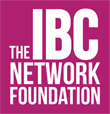
Birthdays Mark Milestones

Inflammatory breast cancer survivor, Terry Arnold, shares her story of diagnosis and survivorship.
For myself, one birthday changed the course of my life I had just turned 49 when one morning I woke up with one breast significantly swollen. Soon I went from a cup C to a D and my bra wouldn’t fit. Today, I am viewed as an inflammatory breast cancer (IBC) survivor. I am very passionate advocate speaking out for greater awareness and education about this rare, but extremely aggressive form of breast cancer.
Never thought I would be her
Alive? Five years later after a triple negative inflammatory breast cancer diagnosis? No I did not, but also I never thought I would get breast cancer. Not that I was special but did not consider myself in a high risk category. I had no breast cancer in my family tree, ever, and I had five babies who I breast fed till their first birthday. I watched what I ate and exercised. I always thought I had excellent breast health. I was more worried about diabetes since my family has a history of it. That morning I woke with one breast swollen, an inflection made sense. That is why, even when I could not lift my right arm comfortably because the right breast area was so swollen and painful, cancer was the last thing on my mind. And it was the last thing on my doctor’s mind as well.
Four months later
After seeing many doctors confused by my condition, not responding to antibiotics, I was forced to start over with a new doctor. I needed fresh eyes and fresh thought because to me, even a child would realize there was something seriously wrong. Again, the C word was not in any conversation, but that fresh set of eyes took one look at me and order a biopsy. You might laugh at me, thinking “Really, how dumb is this chick, four months and she is just getting a biopsy?” I would like to offer some ideas, as to how this happened. First we have been taught, no, drilled into our heads, early detection, self examinations and mammograms save the TaTa’s and all is well. That cancer can’t be seen and cancer does not hurt. Myself and many other women will tell you, sometimes you can see cancer, and it can hurt. So here I am with an orphaned form of breast cancer, discovered in 1814, with not much more know about it now that then. That is a scary place to be in. I went from” Mrs. Arnold there is nothing wrong, to Mrs. Arnold, you have inflammatory breast cancer and we are so sorry we missed it and most likely it is too late.”
Being your own best advocate
I am at my nature an advocate. Founder of the Laura Recovery Center for Missing Children in 1997, also the founder of the first Rape Crisis Program in my county in the early 1980s… I am that person. However to be an advocate for yourself, when cancer has a head start on you is hard. Sick, but not realizing it, I was not at my best. Feeling flue like and confused, my mental state made more sense as I realized the extend of my disease. Long out of the breast, the cancer was having a field day with my body, conquering part of me, like a small army against a sleeping enemy.
I ran to the nearing teaching hospital and I remember thinking, I might not live, but by God, they will learn something off me and I remember shocking a doctor in the first few minutes of our visit by telling him to “Chop me up and figure this out, because I don’t want this to happen to anyone else.”
After a year of treatment, which included six months of chemotherapy, eight months of being bald as a egg, a double mastectomy, because both breast had cancer, six weeks of daily radiation, and 60 pounds heavier, I was done. I was what is called, NED, No Evidence of Disease, the best wording an woman with IBC can hope for. I am the rarest of the rare. I had a rare cancer, and I am a even more rare as I survived. Most women with IBC live only a few years, and me, I am now past the five year mark. I hope one day, as I will never be comfortable being called a survivor, I am surviving, that more will learn about IBC, so one day we can have true survivors. Where cancer is only in our past and one day, pray God, in the ancient history of diseases long cured.
Hope always,
Terry Arnold
TN IBC chick, dx, summer of 2007
Article by Terry Arnold at




